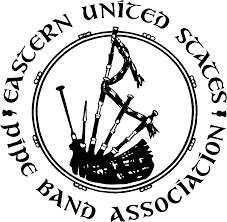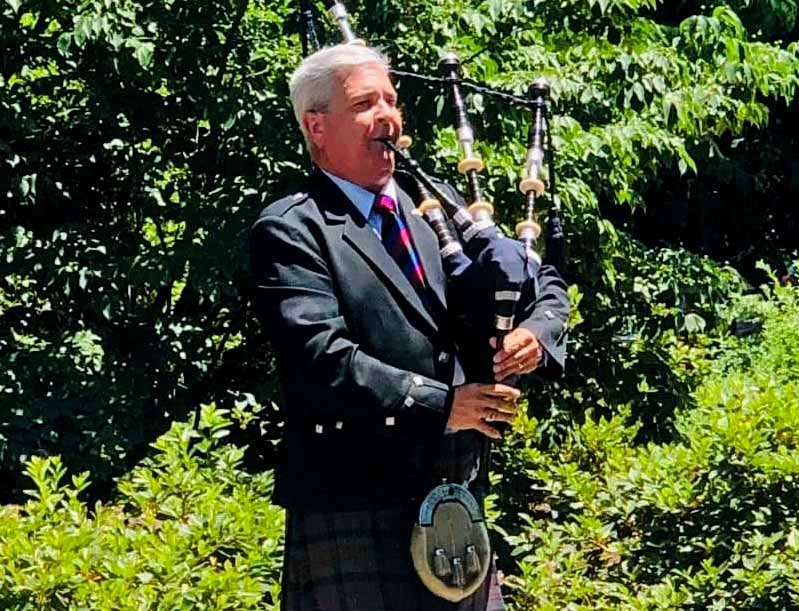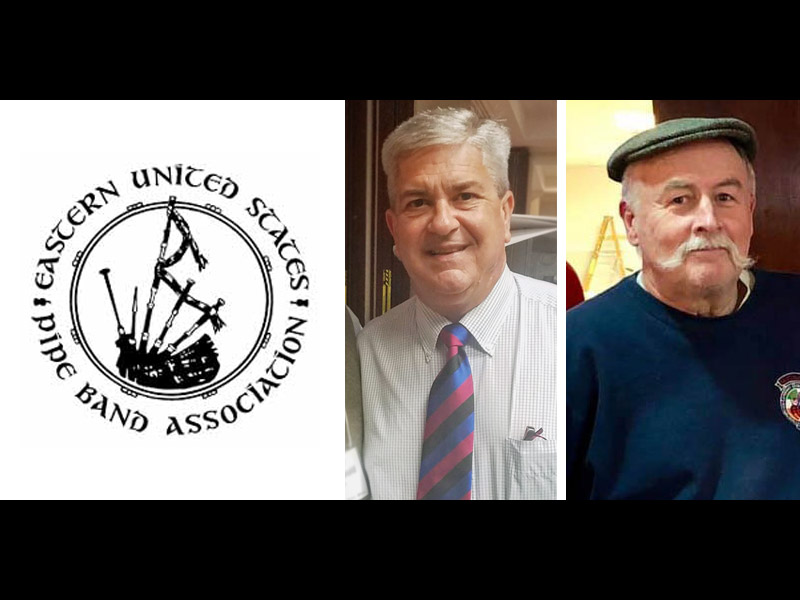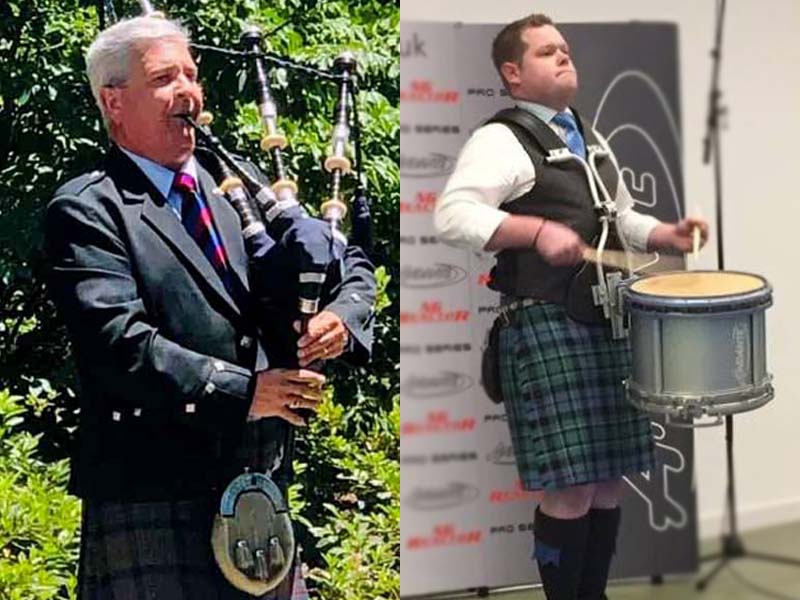EUSPBA working to split judges into A and B designations
 Responding to the “repeated proposals by the membership at multiple recent annual general meetings,” the Eastern United States Pipe Band Association’s Music Board is embarking on a system to create A and B designations for existing and future members of its adjudication panel.
Responding to the “repeated proposals by the membership at multiple recent annual general meetings,” the Eastern United States Pipe Band Association’s Music Board is embarking on a system to create A and B designations for existing and future members of its adjudication panel.
The proposed approach and details on how to appeal a decision were distributed to 90 members of the association’s panel on January 10th. According to introductory comments from EUSPBA Secretary Linda Hall, the system is intended to align with “the majority of North American pipe band associations.” Mid-section and drum-major judges will not be part of the program.
EUSPBA judges will be informed of their designation the week of January 19th, with appeals, if any, to follow, with the ultimate objective of publishing a new list of adjudicators before or early in the 2025 pipe band competition season.
“The EUSPBA’s certification of ‘A’ and ‘B’ adjudicators will mainly follow Alliance of North American Pipe Band Associations [ANAPBA] recommended guidelines,” the EUSPBA’s proposal states. ANAPBA guidelines were set out in 2003 and include strict requirements. The document has reportedly not changed since its implementation 22 years ago.
A-level solo piping and drumming judges, for example, must have “A minimum of 15 years (minimum seven years at the Professional level) solo light music competitive playing experience” with a “reasonable degree of prize-winning success, as interpreted by the home association’s Music Board, in Professional.”
 A-level pipe band judges must have a “(1) Minimum 10 years playing experience on the Great Highland Bagpipe at the Grade 1 or 2 band level; and (2) Must have competed in a Grade 1 pipe band for five years or been Pipe-Major or in a position of musical leadership of a Grade 2 band for 5 years.”
A-level pipe band judges must have a “(1) Minimum 10 years playing experience on the Great Highland Bagpipe at the Grade 1 or 2 band level; and (2) Must have competed in a Grade 1 pipe band for five years or been Pipe-Major or in a position of musical leadership of a Grade 2 band for 5 years.”
The EUSPBA Music Board’s report on the project said, “The Music Board has taken a number of actions to both maximize objectivity by requesting bios from every EUSPBA adjudicator and to minimize bias by seeking outside help during this task. Please note that most, but not all, adjudicators submitted biographical information. The Music Board wishes to emphasize that provision of this information is a critical element of this task and highly encourages any judge that has not done so to submit biographical information.”
The designations of existing judges accredited with non-EUSPBA associations will be honoured by the EUSPBA should they adjudicate sanctioned events.
“Our current judging panel is certainly not broken and needs to be fixed, but, as an organization, we do need to be responsive to changing needs and demands.” – EUSPBA President Bill Caudill
“I feel that all of our current judges are well qualified to share their knowledge and experience and that the EUSPBA’s testing processes and educational requirements for judges are of a very high standard,” said EUSPBA President Bill Caudill, who was recently re-elected to a second two-year term. “We have a deep pool of talent that has already proven themselves through their achievements both domestically as well as on the international stage. Our current judging panel is certainly not broken and needs to be fixed, but, as an organization, we do need to be responsive to changing needs and demands.”
With the aim of “minimizing bias in adjudicator certification,” the EUSPBA will create an advisory panel to “help form and validate EUSPBA panel designations, drawing on their expertise, the Music Board chair’s guidelines, and biographical data collected from EUSPBA’s current panel in 2023.”
The advisory panel will comprise music board, association presidents, and distinguished North American community members with experience in similar adjudicator designations. Distinguished members will have to have at least one of:
- Member of a North American Pipe Band Association, excluding the EUSPBA.
- Two or mor top-three Grade 1 Worlds finishes as a pipe band section leader (P-M, P-S, Midsection Lead, L-D).
- Glenfiddich winner or three or more appearances.
- Winner of multiple A Grade (or above) events at Oban/Inverness.
- World Solo Drumming Championship winner or appearances in three or more finals at the event.
- The above achieved no less recently than 30 years before the current date.
Additionally, advisory panel members will serve for two promotion cycles or until they choose to step down; music board chairs and presidents of the British Columbia Pipers Association and Pipers & Pipe Band Society of Ontario will be invited, with seats updated as positions change in other associations; and distinguished members must meet ongoing criteria for panel consideration.
An appeals process will be in place for judges who feel that their designation is inaccurate, as well as a process for advancement within the system.
All new judges will begin with a “B” designation with a defined path for advancement to “A” provided they meet experience criteria. Excpetions can be made under an evaluation processes, along with continuing education.
“The EUSPBA is, as always, looking to provide the best learning and competitive experiences possible for our membership,” said EUSPBA President Bill Caudill. “Almost two years ago, and shortly into my tenure as President, our Executive Committee agreed to further explore the subject due to continued suggestions and input and thus charged our Music Board with presenting a plan for how this might be applied to our current and future judging panels.
“We did not wish to create any dissension within our esteemed panel of judges, and in particular, we wanted the best possible evaluation, which would be as free as possible of subjectivity, biases, or conflicts of interest.” – Bill Caudill
“In order to be proactive, our Executive Committee wished to see a solid plan for evaluation of our panel, including the processes by which evaluation would be carried out. We did not wish to create any dissension within our esteemed panel of judges, and in particular, we wanted the best possible evaluation, which would be as free as possible of subjectivity, biases, or conflicts of interest. Upon hearing the plan submitted by our Music Board and approving it, our Executive Committee tasked the Music Board with collecting biographical and supportive information from each panel member. Once collected, these were passed to a highly esteemed and internationally respected committee of outside evaluators. As our judges were allowed to present their information for evaluation, we felt that the decisions would be made as objectively as possible.”
 Caudill added: “With the standing fact that we wish to provide the best experience for all of our players and competitors, especially those who are aspiring to and having success internationally, we felt that it was appropriate for us to align with other North American associations in creating the A/B designations, and provide a set of guidelines and standards for us to use for admission to, as well as advancement within, our judging panel in the future.”
Caudill added: “With the standing fact that we wish to provide the best experience for all of our players and competitors, especially those who are aspiring to and having success internationally, we felt that it was appropriate for us to align with other North American associations in creating the A/B designations, and provide a set of guidelines and standards for us to use for admission to, as well as advancement within, our judging panel in the future.”
That said, and with the advancement of piping and drumming here in the Eastern United States reaching levels higher than was the case when our Association was founded, it is only reasonable and healthy as an organization that we continue to evaluate ourselves to be the best we can be, and work together to best serve the interests of our current and future competitors and members. I think that any of our judges, no matter how they may be designated, would agree that the advancement of piping and drumming here in our Association should be our highest priority and goal, and that is truly the spirit in which this program is being moved forward. I feel this should be the goal for all of us as executives, adjudicators and members of the EUSPBA.”
The EUSPBA is one of the first North American associations to implement a formal accreditation process for judges. Until now, there were no levels for EUSPBA judges, which could create challenges when judging in North American jurisdictions with A and B designations.
In the early 1990s, the EUSPBA implemented a “Graduate Exam” that solo piping judging candidates had to pass before being allowed to go through the formal accreditation process. Candidates must submit 12 each of competition marches, strathspeys, and reels, and 12 piobaireachds and play any of them on demand. They must also prove their knowledge and ability to read and write piping and drumming music.
The EUSPBA has grown to have six bands in the top two grades recently. The association’s geography comprises almost half of the United States, the rest handled by the Midwest Pipe Band Association and the Western Pipe Band Association. By contrast, Canada has six associations.








NO COMMENTS YET